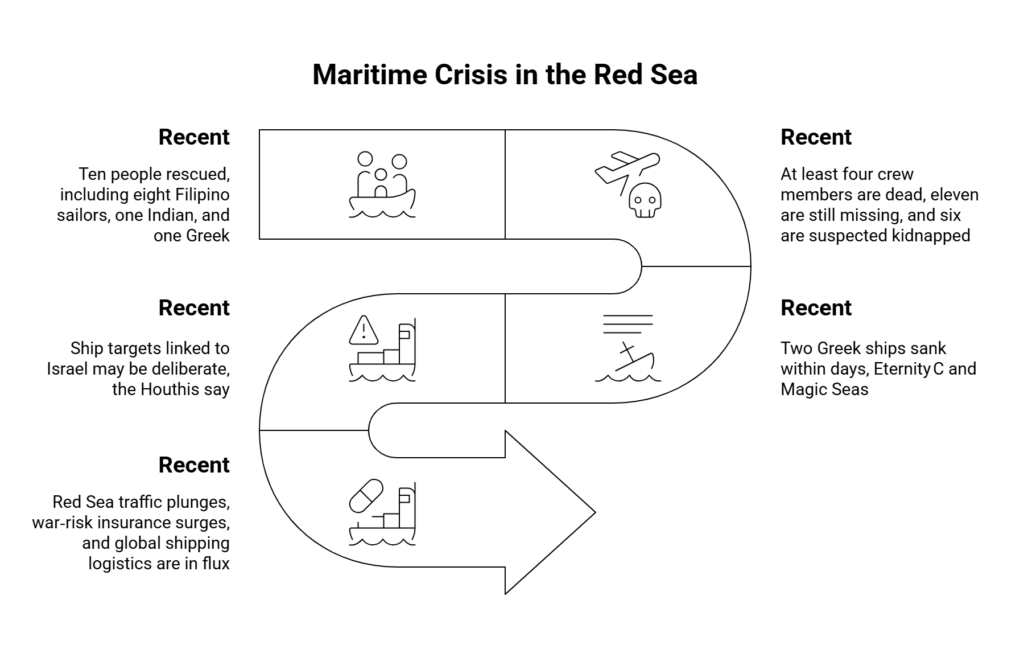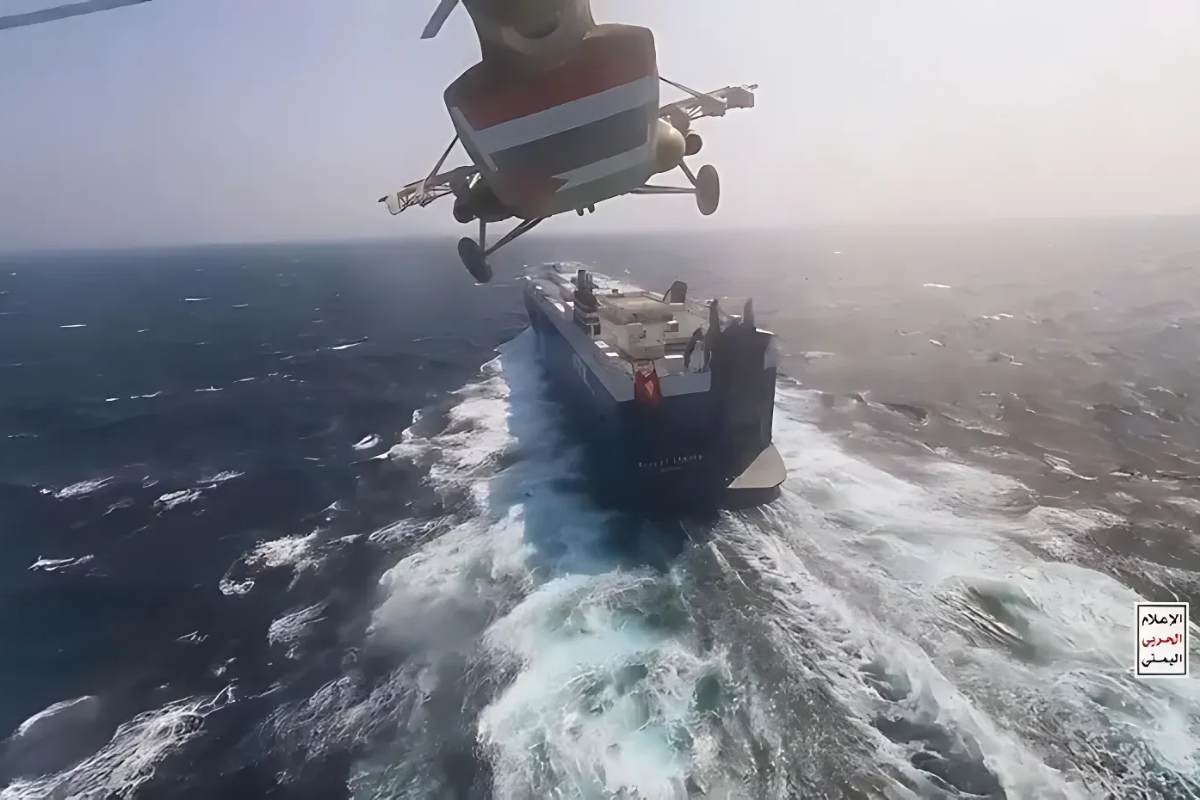Funny thing is, just when it felt like the worst of it might be over… rescue teams pulled three more Filipino crew members, plus a Greek security guard, alive from the waters of the Red Sea on Thursday. They’d been adrift for over 48 hours after the Liberia‑flagged bulk carrier Eternity C was brutally attacked and eventually sank off the coast of Yemen. Believe it or not, those survivors bring the total now to ten rescued from the ship.
What Went Down
It started on July 7, when the Houthis unleashed coordinated strikes: sea drones, rocket-propelled grenades from speedboats, and small‑arms fire. The carrier was hit again on the night of July 8, leaving the crew with no choice but to abandon ship. By July 9–10, rescue ops had already fetched six survivors from the water. Then on Thursday, those additional four were found. All in all, ten people are now safe, a mix of eight Filipino crew, one Indian, and one Greek guard.
But it’s not over. Meanwhile, eleven remain missing, and at least four are presumed dead, the first fatalities in similar attacks since mid‑2024. Several others are feared kidnapped by the Houthis, who say they’ve taken the surviving crew to a “safe location” and provided medical aid (though U.S. officials strongly dispute that narrative).
Two Greek Vessels Gone in One Week
Here’s the kicker: Eternity C was the second Greek‑operated, Liberian‑flagged ship sunk this week. Earlier, the Magic Seas was hit and sank too, but all aboard survived. Both vessels are suspected of direct or indirect ties to Israel, which the Houthis have explicitly cited as justification for their assaults, claiming solidarity with Palestinians in Gaza.
Why It’s a Big Deal
The Red Sea is a crucial artery for global trade, about a third of all container traffic routes through there. Since November 2023, Houthi maritime attacks have slashed traffic volumes, driven insurance premiums through the roof, and forced rerouting around Africa. Now, with these deadly strikes, risk is sky‑high, shipping lines are hesitating, and marine insurers are quoting premiums up to 1% of a ship’s value, the highest in ages.
This week’s attacks are being called among the most coordinated and brutal yet. Security experts are urging international powers to strengthen naval presence, escort commercial ships, and work toward diplomatic pressure to free those believed to be captured.
The Human Story
Imagine being stuck at sea in open water for two straight days. Alone, or with drifting shipmates. Exhausted. Fear building. Then, rescue boats arrive. That moment. Saved, but shaken. Then there are those still missing. Families waiting, phones unanswered. Ships based in distant ports. Plans upended.
And yet. A glimmer of hope emerges with each survivor brought home. Ten breathing, ten more chances at reunion, at healing.
But the missing, the possible hostages, cast a long, haunting shadow.
What Happens Now?
- Coastlines in the shipping lanes are being patrolled, but coverage is patchy.
- International calls are rising, the U.S., U.N., and EU all urging immediate release for any detained crew.
- Maritime firms are reconsidering or outright postponing Red Sea routes unless they can guarantee armed escorts.
- Insurance costs are skyrocketing, making trade uneconomical along this once‑busy corridor.
Quick Recap (Sort of)

- Ten people were rescued, including eight Filipino sailors, one Indian, and one Greek.
- At least four crew members are dead, eleven are still missing, and six are suspected kidnapped.
- Two Greek ships sank within days, Eternity C and Magic Seas.
- Ship targets linked to Israel may be deliberate, the Houthis say.
- Red Sea traffic plunges, war‑risk insurance surges, and global shipping logistics are in flux.
Voice Shift: The Emotional Layer
You feel it, right? What’s at stake? Not just cargo and routes, but human lives. Parents on edge in Manila. Crew missing somewhere out there. Relief at rescue makes each report feel like a heartbeat.
Policy, strategy, they matter. But so do the names, the families, the reality that these are real people caught in geopolitical crossfire.
Wrap‑Up:
Here’s the bottom line: things changed fast, and not for the better. But so far, rescuers have gotten ten people out alive. That’s a win amid tragedy. Now the urgent questions: Can the rest be found? Will the kidnapped be freed? Can shipping routes be secured again?
What happens over the coming days, from diplomatic negotiations to naval responses, will shape whether this becomes a turning point or just another escalation.






















